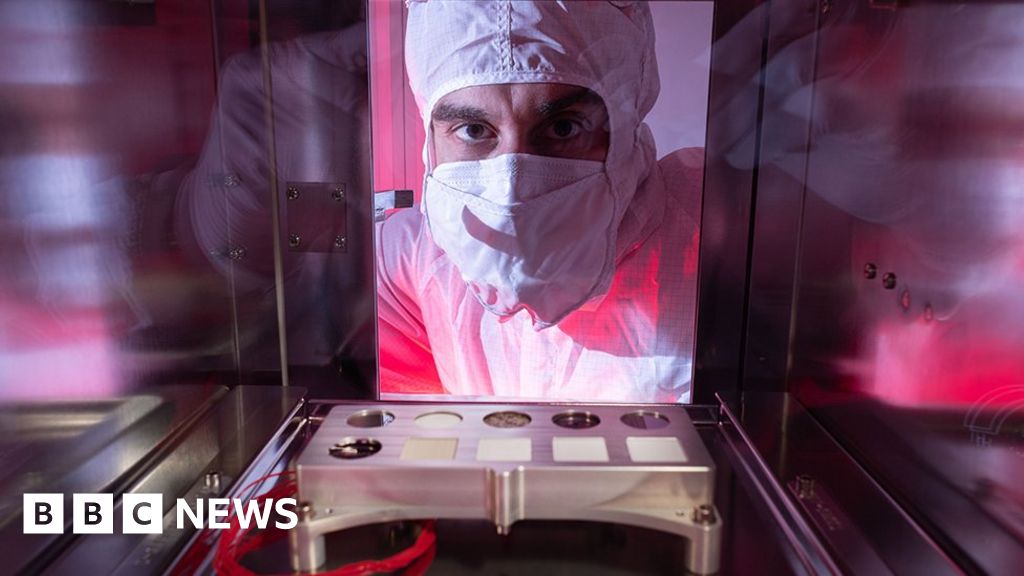A small chunk of Mars will be heading home when the US space agency launches its latest rover mission on Thursday.
Nasa's Perseverance robot will carry with it a meteorite that originated on the Red Planet and which, until now, has been lodged in the collection of London's Natural History Museum (NHM).
The rock's known properties will act as a calibration target to benchmark the workings of a rover instrument.
It will give added confidence to any discoveries the robot might make.
This will be particularly important if Perseverance stumbles across something that hints at the presence of past life on the planet - one of the mission's great quests.
"This little rock's got quite a life story," explained Prof Caroline Smith, head of Earth sciences collections at the NHM and a member of the Perseverance science team.
"It formed about 450 million years ago, got blasted off Mars by an asteroid or comet roughly 600,000-700,000 years ago, and then landed on Earth; we don't know precisely when but perhaps 1,000 years ago. And now it's going back to Mars," she told BBC News.
(snipsnap)
Nasa's Perseverance robot will carry with it a meteorite that originated on the Red Planet and which, until now, has been lodged in the collection of London's Natural History Museum (NHM).
The rock's known properties will act as a calibration target to benchmark the workings of a rover instrument.
It will give added confidence to any discoveries the robot might make.
This will be particularly important if Perseverance stumbles across something that hints at the presence of past life on the planet - one of the mission's great quests.
"This little rock's got quite a life story," explained Prof Caroline Smith, head of Earth sciences collections at the NHM and a member of the Perseverance science team.
"It formed about 450 million years ago, got blasted off Mars by an asteroid or comet roughly 600,000-700,000 years ago, and then landed on Earth; we don't know precisely when but perhaps 1,000 years ago. And now it's going back to Mars," she told BBC News.
(snipsnap)
This should really improve our relationship with Mars



Comment